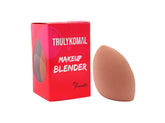Topical Analgesic Creams for Pain Relief: Effective Treatment or Just a Marketing Fad?
Muscle soreness and joint pain are common challenges faced by athletes, from seasoned professionals to newcomers. These issues can interfere with training, reducing workout intensity or duration, and may even discourage individuals from sticking with their fitness routines.
Immediate treatment, such as applying ice and using anti-inflammatory medications (as advised by a doctor), can significantly alleviate these discomforts. Many over-the-counter topical creams claim to provide similar relief for muscle and joint soreness. But do these creams—often marketed as quick fixes—really work, or are they just a marketing gimmick?
How Effective Are Topical Analgesic Creams?
Topical creams, which athletes often find soothing due to their pleasant scent and cooling sensation, are a popular solution for managing muscle and joint discomfort.
However, critics argue that the active ingredients in these creams, such as trolamine salicylate, may not penetrate the skin deeply enough to target the underlying tissues where the pain originates. Despite these concerns, emerging research suggests that these creams may indeed provide meaningful pain relief.
One influential study conducted over a decade ago at the Veterans Administration Medical Center in Philadelphia tested trolamine salicylate cream on both humans and dogs. In the canine portion of the study, dogs treated with the cream showed 20 times more salicylate in their muscles compared to those receiving oral aspirin (the active ingredient in trolamine salicylate).
Interestingly, while the oral aspirin group had higher levels of salicylate in their bloodstream, those treated with the cream had significantly higher concentrations of the compound in tendons, ligaments, cartilage, and joint cavities—the very areas where pain and inflammation occur.
The findings in humans were similarly promising, with trolamine salicylate cream effectively targeting joint areas and providing comparable pain relief to oral aspirin. Moreover, researchers noted a key advantage of the cream: it rapidly penetrates the skin and remains in the underlying muscles and connective tissues for extended periods, releasing the active ingredient gradually into the bloodstream.
This sustained local effect resulted in effective pain relief, without the gastrointestinal side effects commonly associated with oral anti-inflammatory drugs like aspirin or ibuprofen.
Clinical Evidence: Enhanced Recovery and Pain Reduction
In more recent clinical trials, the benefits of trolamine salicylate continued to be demonstrated. A study at Mount Sinai Medical Center in Miami involved 34 participants (22 males and 12 females) who performed bicep curls to induce muscle soreness.
Over five consecutive days, participants applied ½ ounce of Aspercreme, a commercial product containing 10% trolamine salicylate, to their biceps four times a day. Half of the group used Aspercreme, while the other half applied a placebo cream. The subjects, unaware of which cream they were using, rated their muscle soreness on a scale from 0 to 10 several times each day.
The results were striking:
- Reduced Pain Intensity: Participants using Aspercreme reported significantly lower levels of pain compared to those using the placebo cream.
- Faster Recovery: Pain persisted for one day less among Aspercreme users, indicating quicker recovery.
These findings underscore that salicylate-based creams can help delay the onset of muscle soreness, reduce the intensity of pain, and shorten recovery time. Furthermore, unlike oral painkillers, these topical creams generally do not cause the stomach discomfort or gastrointestinal side effects that are common with drugs like aspirin and ibuprofen.
Other Benefits of Salicylate: Acne, Psoriasis, Dandruff, and Warts

Beyond its use for muscle and joint pain, trolamine salicylate has additional benefits for skin health. This compound is also effective in treating conditions like acne, psoriasis, dandruff, and warts. Salicylate helps reduce inflammation, clear clogged pores, and promote skin renewal, making it a valuable ingredient in topical treatments for these common skin concerns.
Products like Truly Komal, a brand known for its skin care solutions, incorporate salicylate to target these conditions. Whether for soothing irritated skin, improving acne-prone areas, or managing the symptoms of psoriasis and dandruff, the topical application of salicylate can provide a multi-faceted solution for improving skin health.
Can Pre-Exercise Application Prevent Pain?
Another potential benefit of salicylate creams is their ability to reduce inflammation and soreness when applied before exercise. While further research is needed, some studies suggest that applying the cream to "hot spots"—areas prone to soreness or strain—before a workout may help prevent or reduce post-exercise pain. However, it's essential to remember that pain should not be ignored. If you experience significant discomfort during training, it's best to cease activity and allow your body to recover.
Conclusion: Do Topical Analgesic Creams Really Work?
Analgesic creams containing 10% trolamine salicylate have been shown to be effective in relieving muscle soreness and joint pain, often offering advantages over oral medications.
These creams not only delay the onset of pain but also reduce its intensity and duration, aiding in faster recovery. Furthermore, they come with fewer side effects, such as the gastrointestinal distress associated with oral anti-inflammatories.
Beyond muscle and joint pain, salicylate-based creams, like those in the Truly Komal product line, also offer benefits for a range of skin conditions, including acne, psoriasis, dandruff, and warts. By targeting inflammation and promoting skin healing, salicylate is a versatile and effective ingredient for both pain relief and skin care.
As with any treatment, it's important to listen to your body and not push through pain. Topical creams can be a helpful addition to a recovery routine, but they should complement—not replace—rest and proper care for injured muscles or joints.



